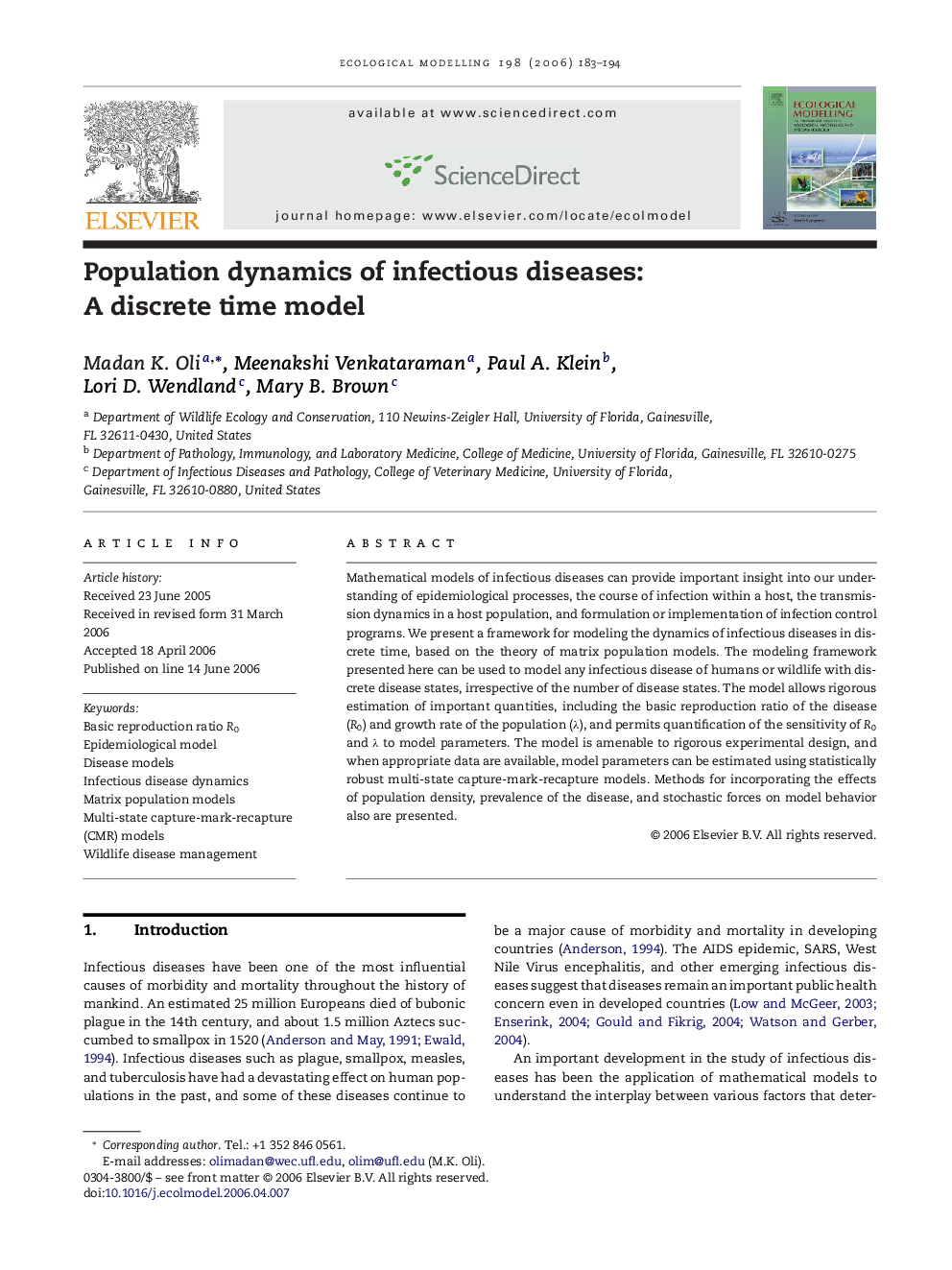| Article ID | Journal | Published Year | Pages | File Type |
|---|---|---|---|---|
| 4378846 | Ecological Modelling | 2006 | 12 Pages |
Abstract
Mathematical models of infectious diseases can provide important insight into our understanding of epidemiological processes, the course of infection within a host, the transmission dynamics in a host population, and formulation or implementation of infection control programs. We present a framework for modeling the dynamics of infectious diseases in discrete time, based on the theory of matrix population models. The modeling framework presented here can be used to model any infectious disease of humans or wildlife with discrete disease states, irrespective of the number of disease states. The model allows rigorous estimation of important quantities, including the basic reproduction ratio of the disease (R0) and growth rate of the population (λ), and permits quantification of the sensitivity of R0 and λ to model parameters. The model is amenable to rigorous experimental design, and when appropriate data are available, model parameters can be estimated using statistically robust multi-state capture-mark-recapture models. Methods for incorporating the effects of population density, prevalence of the disease, and stochastic forces on model behavior also are presented.
Related Topics
Life Sciences
Agricultural and Biological Sciences
Ecology, Evolution, Behavior and Systematics
Authors
Madan K. Oli, Meenakshi Venkataraman, Paul A. Klein, Lori D. Wendland, Mary B. Brown,
